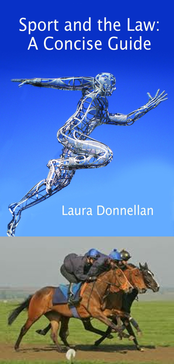In the 1970s, a tripartite agreement (TPA) on the movement of horses between the United Kingdom, Ireland and France was established. Under the TPA, horses could be transferred without the need for formal veterinary inspections between the three countries. In 2005 a revised TPA was negotiated and under section 4 (1) it stipulated that passports were required for horses. However, in Ireland the portal inspection facilities were not equipped to inspect horses and attest that the accompanying passport was correct nor were the personnel trained to inspect the welfare of the horses. Many horses were passing through ferry ports and border crossings without microchip numbers being checked. In most instances officials were not inspecting markings with the passport details. There were concerns about equine welfare under the 2005 TPA as the risk of undetected disease and the movement of horses destined for slaughter became increasingly apparent. The 2005 TPA resulted in horses being transferred for slaughter; however, this was not disclosed by the horse-dealers. This posed problems for Ireland as horses are not generally bred for food in this country. As a result, many horses destined for slaughter were moving from Ireland to the UK and France in breach of the terms of the TPA. Horses destined for slaughter were required to be notified through the TRACES system (Trade Control and Expert System-a centralised database for tracking the movement of animals and products of animal origin from both within and outside the EU) and health certificates had to accompany these animals. The TPA created a loophole whereby these lower grade animals were being moved without any traceability.

There are two parts to the revised TPA. The first part relates to the requirements for horses moving between Ireland and France and between the UK and France. The second part of the TPA refers to the requirements for horses moving between Ireland and the UK.
On the 18th of May 2014 the transfer of horses between Ireland and France and the UK and France (and vice versa) will be restricted to the following:
- Thoroughbred horses being moved for racing, breeding, training or moving to a sale,
- Sporting horses competing in a FEI (Fédération Equestre Internationale) sponsored competition, and
- Non-registered thoroughbred horses.
Under the new TPA, all movements of horses between the UK and France and Ireland and France (and vice versa) will be required to be notified under the TRACES system. Horses demonstrated to be of “high health” by an Approved TPA body (which may include sporting associations, industry federations or similar bodies approved in Ireland, France and the UK) and travelling with a DOCOM and valid passports are exempt from the requirements of Article 4 (1) Council Directive 2009/156/EC. Movements of horses between France and Ireland and France and the UK (and vice versa) will have to be accompanied by a health certificate issued by a veterinary surgeon, as required under Article 4 (5) of Council Directive 2009/156/EC. Horses classified as “high status” which are moving between France and Ireland and the UK and France (and vice versa) have an exemption under Article 6 of the 2009 Directive. Article 6 provides that Member States with an alternative control system which provides equivalent guarantees may be exempt from the provisions of Article 4 (1) and Article 8 (1) (b) on a reciprocal basis. Article 4 (1) states that horses must show no clinical sign of disease at inspection and inspection must be carried out 48 hours in advance of the embarkment or loading of the animal. This applies only to horses registered in a studbook or likely to be registered in a studbook. Article 8 (1) (b) requires that a health certificate complying with Annex III accompany the transportation of equidae for breeding, production and slaughter.
Although not yet finalised, the following are likely to be the Approved TPA bodies in Ireland: 1] The Irish Thoroughbred
Breeders Association –thoroughbred breeding animals including thoroughbred animals moving to sales 2] The Turf Club - racing thoroughbreds and 3] Horse Sport Ireland –competition sport horses competing at FEI competition events.
Under the category of “high health” status, such equines must be subjected “to regular veterinary supervision to ensure that a genuine high status health status is maintained” (section 4.1 TPA 2014).
Under Section 6 (1) of the 2014 TPA, in the event of a confirmed outbreak of a listed disease, the signatory Member States must notify each other within 24 hours. Section 7 of the TPA 2014 provides information on diseases. This must be communicated by either the Animal Disease Notification System (ADNS), by email or fax.
The movement of horses between Ireland and the UK is unaffected by the 2014 amendments as both countries have a shared health status for horses. The amendments relate only to movements between Ireland and France and the UK and France. Horses moving between Ireland and the UK must be accompanied by a passport, which was required under the 2005 TPA.
While the 2014 TPA is to be commended, its implementation is another matter. There is a need for appropriate facilities and personnel at all ferry ports in order to ensure that the terms of the TPA are adhered to. Regular reviews will be required in order to monitor the situation. The creation of Approved TPA bodies should greatly enhance the effectiveness of the new TPA.
For a more detailed discussion see, Laura Donnellan, “The transfer of race horses between the United Kingdom, Ireland and France: the 2014 Reforms” (2014) 3 (1) Global Sports Law and Taxation Reports 19-21.
Laura Donnellan is a lecturer in Law in the University of Limerick. She is the author of Sport and the Law: A Concise Guide published by Blackhall Publishing.
 RSS Feed
RSS Feed